Nasce un Campione
He who is called
away from love and duty by a passion for the sport.
Russell might
have it in mind at the start of French
Dressing, certainly the inspiration is Tati (L’École des Facteurs, jour de fête), in characteristically dispassionate narration.
I sette
contadini
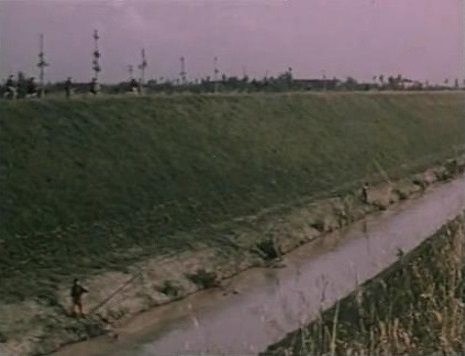
The Fascists and
their war came and went, leaving this memorial to i fratelli Cervi.
It recalls the
documentary work of John Ford, especially Midway
and Torpedo Squadron 8, beginning and
ending in scenes of peace like Nasce un Campione.
Cp. The Fighting Sullivans
(dir. Lloyd Bacon).
L’assassino
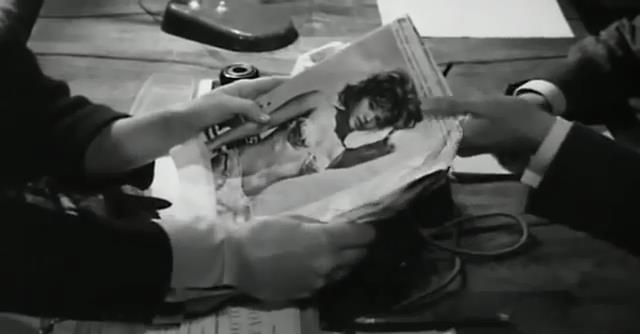
A night in jail for a Roman scapegrace of
an antiquario
suspected of murder.
Cf. Rossellini’s Anima
nera (here, with Mastroianni, a foretaste of
Visconti’s Il straniero).
Philip French (The Guardian), “like a cross between JB Priestley’s An Inspector
Calls and Kafka’s The Trial...”
I giorni
contati
![]()
Numbered Days, a clarification of Kurosawa’s Ikiru
to start with...
“How Pasolini reconciles cinema and literature”, says the
headline over the face of the dead man on the morning tram, a fortunate
escapade among cadaveri eccellenti.
The consolations
of art? One is a plumber. Medical science? The old flame? Travel?
The wisdom of his
years sits as a wig on a girl of seventeen.
Eleanor Mannikka (All Movie
Guide), “psychological and social drama”.
Il maestro di Vigevano
Like Sedgwick’s Speak
Easily, a spoof of Sternberg’s Der blaue Engel.
Mallarmé edited La
Dernière Mode, Rattigan’s Chipping married an
artiste, Godard’s Le Mépris is mirrored in
Petri’s film.
Signor Bugatti is the beau idéal
of Reisz’ Isadora.
The ambition of a
schoolteacher to become a shoe magnate at his wife’s urging has the softest
suggestion possible of Chaplin’s The Great Dictator in the gymnasium
scene, and that’s enough.
La decima vittima
It was fatally
misunderstood, porca madonna,
as “a clever but patently self-conscious intellectual exercise” (Bosley Crowther, New York Times), whereas it is the battle
of the sexes and a simple romance.
Crowther’s remark only means that he tired of it, the error
is to confuse the stylistic construction of the entire film (a world government
sponsoring the Big Hunt) with its stylistic presentation as a kind of
science-fiction future.
There’s not much
use in asking for further analysis, if the thing can’t be grasped at all. The
State claims all parents, Marcello hides his away for safekeeping, his ex-wife
and his mistress are chums, he’s expected to marry the latter now that an
annulment has been granted.
The rules of the
game are set forth, one alternates as hunter and victim, ten kills (The 10th
Victim) mean a million dollar prize.
Caroline is a
victim, then a hunter, Marcello first hunter then victim. The two are paired by
a computer in Geneva (hunter knows victim, victim knows nothing), the hunt is
on.
A ciascuno
il suo
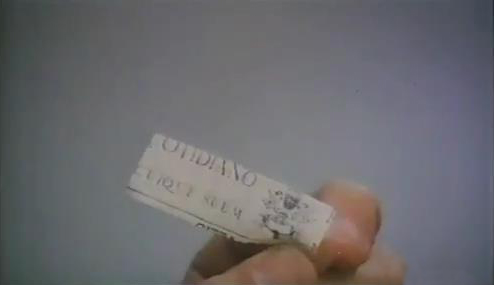
An assassination
viewed from a Sicilian perspective as a delitto d’onore or not, as the case may be.
Irene Papas as
the widow, e.g.
A certain
anticipation of Z (dir.
Costa-Gavras), mirabile dictu.
Gian Maria Volontè’s amusing
portrait of a professore di liceo.
“Hanno fatto un vero capolavoro.”
Renata Adler of the New
York Times, “the movie can't seem to commit itself to a tone or a form.”
Un posto tranquillo
di campagna
The ending
perfectly coincides with that of Reisz’ Morgan—A Suitable Case for Treatment,
and there is Vanessa Redgrave both times to seal the deal, therefore it is
possible to speak of something else besides the “study of encroaching madness”
noted by Howard Thompson in his New York Times review (of the English
version, A Quiet Place in the Country), a rave as it happens.
There is the
artist, comfortably ensconced and all that, so tenuously allied with the real
in a certain sense, of this world and all that, one picks up his work at the
loony bin, “his best”. He cannot be categorized or subsumed,
the style conveys his mind, perhaps the least significant aspect of his
existence.
Indagine su un
cittadino al di sopra di ogni sospetto
Petri pays a debt
incurred to Robbe-Grillet (Le Voyeur) by means of a pun, Othello’s “out,
brief candle”. This is the pivot whereby the “iron bar without a hole” in the
Zen koan (an open door) is revealed at the end of the
film as Kafka’s “Before the Law” to give the meaning “I am the way, the truth,
and the life”.
That is
sufficiently abstruse and plain to account for the various interpretations.
Only one citizen is above suspicion. Caesar’s wife is another pun.
The unnamed Chief
of Homicide Section looks up at his mistress and sees the word Scienza, after the deed he looks out the window and
sees the Hebrew letters of the Decalogue set in stone.
The witness is a
revolutionary zealot. Sea water is given a conspirator, fresh if he confesses.
So it goes, pearling before swine (the critics who thought it a screed), a work
every bit the equal of Buñuel’s finest.
A promotion to
Chief of Political Intelligence sets the protagonist in a comic light vis-à-vis
his staff like the stranger inquiring of news on the road to Emmaus.
A fairly
gripping, surreal policier on the face of it,
exceptionally well-filmed (it lost the Golden Palm at Cannes to MASH,
another film equally admired and misunderstood).
Tre ipotesi sulla morte di Giuseppe Pinelli
Documenti su Giuseppe Pinelli
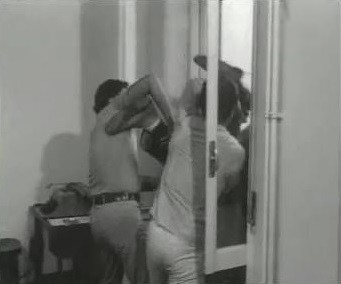
Death by
defenestration of “the anarchist Pinelli”, the official versions, various “headlines”, a case from
the history books.
Variety,
“an agitprop short”.
La classe operaia
va in paradiso
Laborare est orare, Bresson’s ass would say, where should Kafka’s
cases go if they smashed the apparatus that mangled them?
Management have
stopwatches, Communists have bullhorns (“more money, less work!”).
Elia Kazan’s On
the Waterfront, Guy Green’s The Angry Silence.
A great master of
the Italian cinema, a great actor in the lead.
Palme d’or, Cannes.
A.H. Weiler (New York Times) naturally resented this,
having no class and doing no work, as a rule.
La proprietà non è più un furto

Your thief is a thief, a psychological case if you will, and a certain
social element, economically speaking.
Your corrupt businessman is something of a thief etc.
Dieterle’s Fashions of 1934 states the case, also
Lang’s You and Me.
Your Marxist is
another ball of wax on the Satanic side, his error is manifest.
Hence this
satirical critique and the title, Q.E.D. The concubina and the
brigadiere
are considered as well.
De Sica’s Ladri di biciclette and Bresson’s Pickpocket are prime studies.
Clarke Fountain (All Movie Guide), “a complicated tale”.
Todo modo
“Todo modo para buscar la voluntad divina.”
Ignatian exercises to purify the social leaders of Italy.
At the end, they
are all found dead, including the priest who conducts the exercises, with
reference to Poe’s “The Masque of the Red Death”.
A mad acronym of
Fascism is discerned in the course of the proceedings.
Canby would have
liked to have a program, and relates that the film was banned in Italy. The
style is observable as among the best that country offers, both Fellini and
Antonioni are comfortably spoken.
Buone Notizie
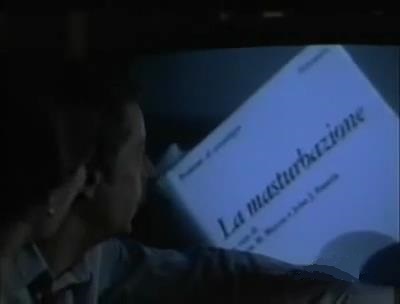
Last Waltz with Milano, the man in the middle, “una historia di frocci” if you like, it depends on the point of view.
The old squeeze
play, but neither the TV news executive nor his wife did it, they were watching
the news at the time, a Jew at that and fearful of everything, the late
lamented.
And who knocked
up the little woman in the end (cf.
Reisz’ Morgan—A Suitable Case for
Treatment), anyway?
Jules Feiffer for ambiance (Little
Murders, dir. Alan Arkin). The littered landscape
of Todo modo, a paper
chase (The Stranger, dir. Orson
Welles).
Dan Pavlides (All Movie
Guide), “the theme is that human triviality and hang-ups hamper the quests
of basic needs that can lead to a satisfying existence.”